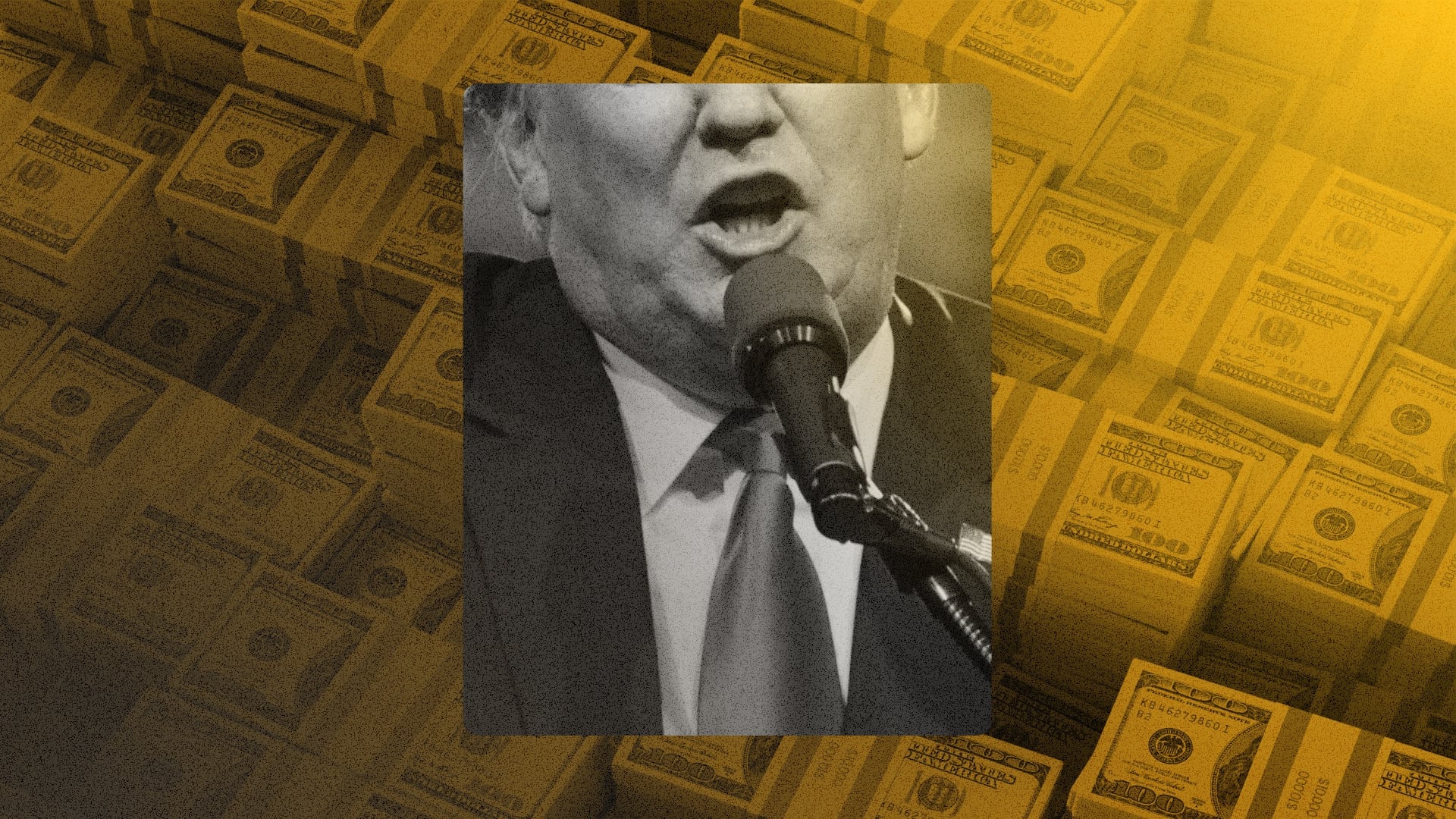
.svg)
President Donald Trump has signed a proclamation that will require a $100,000 application fee for H-1B visas, in what experts are calling one of the most dramatic changes to the skilled worker program in decades. The proclamation went into effect on September 21, 2025.
The new policy also directs the Department of Labor (DOL) to raise prevailing wage levels, a move intended to ensure H-1B workers are not hired at below-market rates compared to U.S. workers. Together, these measures represent a sweeping overhaul of a visa program that has long been relied upon by U.S. employers to fill high-skilled roles in technology, engineering, and healthcare.
{{tip-component-1}}
Boundless can help you explore the EB-1A green card — a stable alternative to the unpredictable H-1B visa. See if you qualify.
Key Changes Proposed
The proclamation outlines several sweeping changes:
- New $100,000 Fee: Employers must pay this one-time fee for each H-1B petition. It’s not yet clear if this will replace or be added to existing fees, which already include $215 for the H-1B lottery registration and $780 for the petition filing, along with other charges.
- Higher Wage Standards: The DOL will revise wage rules to raise required salaries for H-1B workers, further increasing costs for employers.
- Increased Scrutiny: The administration states these measures are intended to protect U.S. workers and crack down on perceived misuse of the H-1B lottery system.
{{tip-component-2}}
Who’s Affected
- New H-1B visa petition filings for foreign nationals who are outside of the U.S. as of September 21, 2025, 12:01 AM ET. Absent court action, the proclamation will take effect, and they will not be able to return to the U.S. until their employer pays the fee. Further guidance on how companies can make this payment is expected soon.
Who May Be Affected
- H-4 dependents (spouses and children of H-1B workers).
- Former H-1B holders who currently hold a different immigration status but want to switch back to H-1B.
- Individuals filing for H-1B extensions, amendments, or change-of-employer applications.
Who Isn’t Affected
- Current H-1B holders who are in the U.S. as of September 21, 2025, 12:01 AM ET.
- Current H-1B holders who have valid H-1B visa stamps and are traveling outside the U.S. within their visa’s validity period.
- Individuals who filed H-1B petitions before September 21, 2025, 12:01 AM ET. This includes those seeking visa issuance and/or entry to the U.S. (per a new DOS alert).
- New or existing H-1B holders who are working in the national interest of the United States and do not pose a threat to the security or welfare of the U.S.
{{tip-component-3}}
How to Pay the $100,000 H-1B Fee
USCIS has released new guidance explaining how and when employers must pay the $100,000 H-1B fee.
Where to pay:
Employers must submit the payment electronically through pay.gov using the form titled H-1B VISA PAYMENT TO REMOVE RESTRICTION.
When to pay:
The $100,000 payment must be completed before filing an H-1B petition. At the time of filing, petitioners are required to include proof that the payment has been made or documentation showing an approved exception from the Department of Homeland Security. USCIS will deny petitions that do not include either the pay.gov confirmation or evidence of an exemption.
Required documentation:
When submitting the H-1B petition, employers must attach one of the following:
- A copy of the payment confirmation from pay.gov, or
- Proof of an approved exception from the Secretary of Homeland Security.
Refunds:
If USCIS denies the H-1B petition, the $100,000 payment will be refunded in full. Employers should ensure that banking details entered on the pay.gov form are accurate and match the information submitted with the petition.
What This Means for Employers and HR Professionals
The impact on U.S. companies will be immediate and significant:
- Cost Increases: A company sponsoring 10 H-1B workers annually could face $1 million in additional expenses under the new fee structure.
- Budget and Compliance Shifts: HR teams will need to revise immigration budgets, adjust compensation packages to meet higher wage standards, and prepare for increased scrutiny in filings.
- Labor Gaps and Reduced Diversity: International talent may simply look elsewhere for employment, creating labor shortages and reducing diversity in the U.S. workforce. This would particularly hurt science, technology, engineering, and math (STEM) sectors, which rely on diverse skill sets and international collaboration.
- Innovation Slowdown: Industries that rely on international talent, particularly tech, may experience slower growth, as domestic workers alone are unlikely to fill the gaps in the workforce.
- Workforce Strategy Changes: Businesses unable to absorb the costs or fill labor gaps with domestic workers may turn to automation, offshoring, or even investments in domestic upskilling programs.
Looking for a more stable path than H-1B? The EB-1A green card offers a reliable option for high-achieving professionals. No lottery, no arbitrary caps — just a clear route to stability and retention.
What This Means for Immigrants and Workers
For international professionals, especially in STEM fields, the new $100,000 fee could make the H-1B visa inaccessible. Early-career workers, recent graduates, and those from industries with lower salaries may see U.S. work opportunities vanish, as employers may reserve H-1Bs for only the most critical or senior roles. In addition, students on Optional Practical Training (OPT) hoping to transition to H-1B status could face a much more selective job market as employers rethink sponsorship.
The Big Picture
The Trump administration argues the overhaul will protect U.S. workers, strengthen wage standards, and close loopholes in the H-1B process. However, the policy has alarmed business groups, tech leaders, and immigration advocates, who warn that such a steep fee could effectively turn the H-1B into a “luxury work permit” accessible only to the wealthiest corporations and workers. This would sideline startups and smaller businesses, push skilled talent to other countries, and weaken the United States’ standing as a global innovation leader.
“The U.S. has built its leadership in technology and innovation by making itself the destination of choice for the world’s top talent,” said Xiao Wang, founder and CEO of Boundless. “Policies like this, alongside growing scrutiny of student visa applications, make it harder for bright, ambitious people to come here and put the United States’ standing as a global leader in innovation at risk.”
New Policies Require New Approaches
While the Trump administration’s policy change is poised to upend the H-1B visa pathway for employees and businesses alike, there are alternatives. A small but growing number of companies are starting to look at other pathways for hiring foreign national talent, including extraordinary ability visas like O-1 and EB-1A. While these pathways require greater upfront investment in developing a strong petition, they bypass the H-1B lottery and create a straight path to legal permanent residency.
“The interest from individuals looking to forge their own career paths in the U.S. has driven a surge in EB-1A petitions over the past year,” said Wang. “More recently, we’ve been hearing from a growing number of HR and business leaders that they are actively exploring alternatives to the H-1B visa for their top talent. While the new proclamation, should it stand up to legal challenges, is a blow to H-1B, this is a wakeup call to employers of foreign national talent that it’s time to rethink their global mobility programs.”
Looking Ahead
The new policy is likely to be challenged in court, as new visa fees can typically only be introduced either through legislation passed by Congress or through a formal rule making process that requires months of public notice and comment. However, if enacted, the $100,000 H-1B fee would mark one of the most consequential shifts in U.S. employment immigration policy in years, creating barriers for skilled immigrants, reshaping how companies hire global talent, and potentially impacting America’s economic competitiveness.
If you’re a U.S. employer or international worker who anticipates being affected by the new proposal, look out for additional policy updates and speak to an immigration attorney to understand your options.
Boundless will continue tracking this development and provide updates as more details emerge.
{{cta-component-center-aligned}}
The Department of State (DOS) released an alert clarifying that the new $100,000 fee does not apply to individuals who filed their H-1B petitions before September 21, 2025 and are currently seeking visa issuance and/or entry into the U.S.
It’s still unclear whether this rule applies only to the very first H-1B filing — such as a lottery petition or an initial cap-exempt filing — or if it will also cover later filings, like a change of employer. According to a U.S. Citizenship and Immigration Services (USCIS) memo, the policy is limited to new H-1B petitions filed on behalf of foreign nationals who are outside the United States.
It’s not yet clear. The proclamation specifies that the $100,000 fee applies to new H-1B petitions filed on behalf of foreign nationals outside the U.S., but it does not confirm whether later filings — such as extensions, amendments, or change-of-employer applications — will also be affected. Boundless will provide updates as soon as more guidance is released.
.png)
Maximize your chances in the H-1B lottery with Boundless’ strategic support.
Discover our corporate immigration solutions and secure the talent you need.
Maximize your chances in the H-1B lottery with Boundless’ strategic support.
Discover our corporate immigration solutions and secure the talent you need.
.png)
.png)










.svg)
.avif)